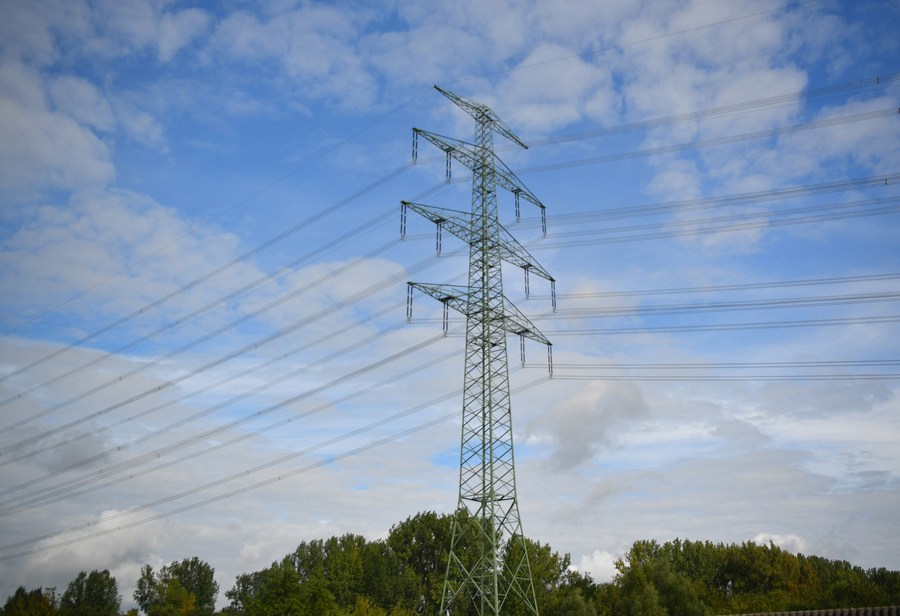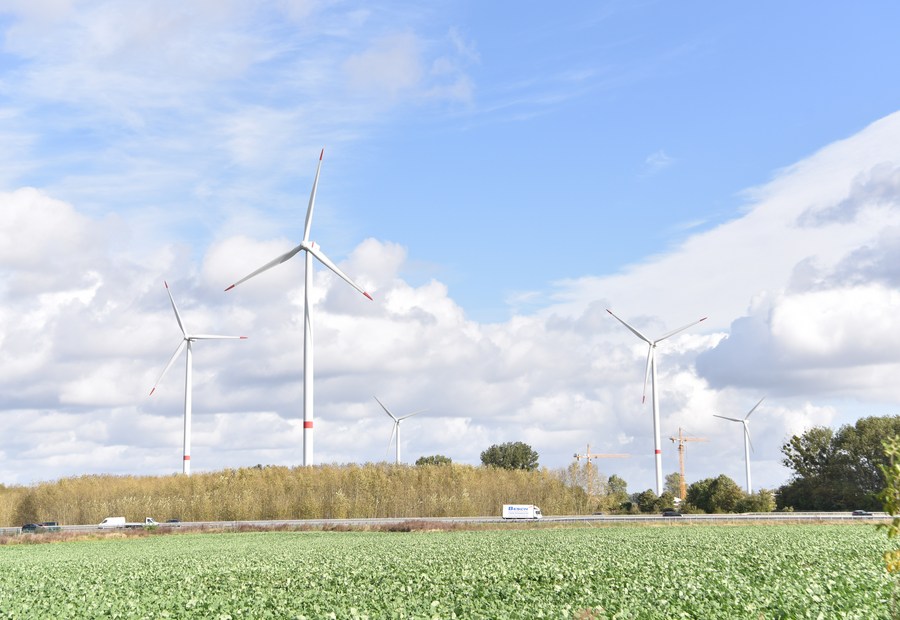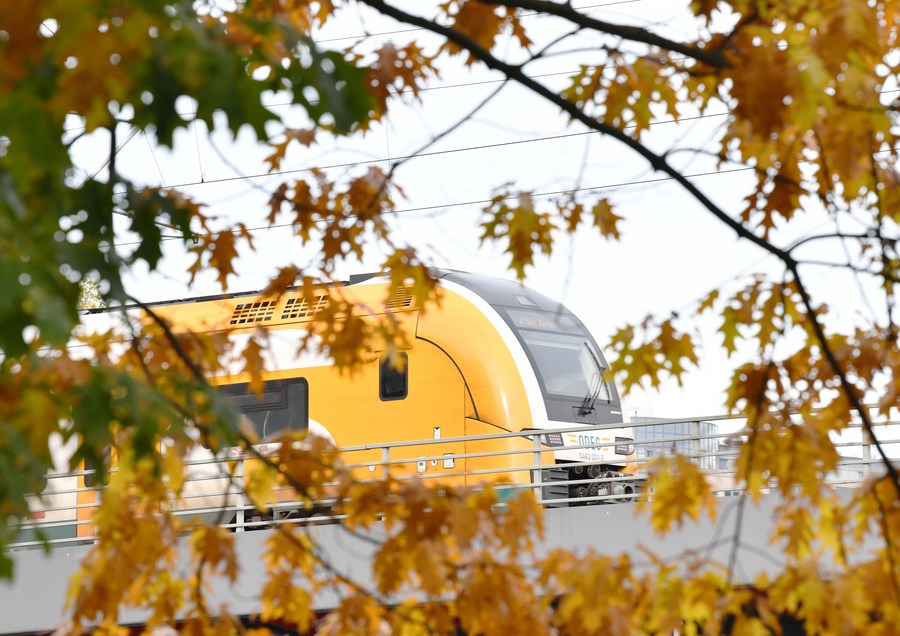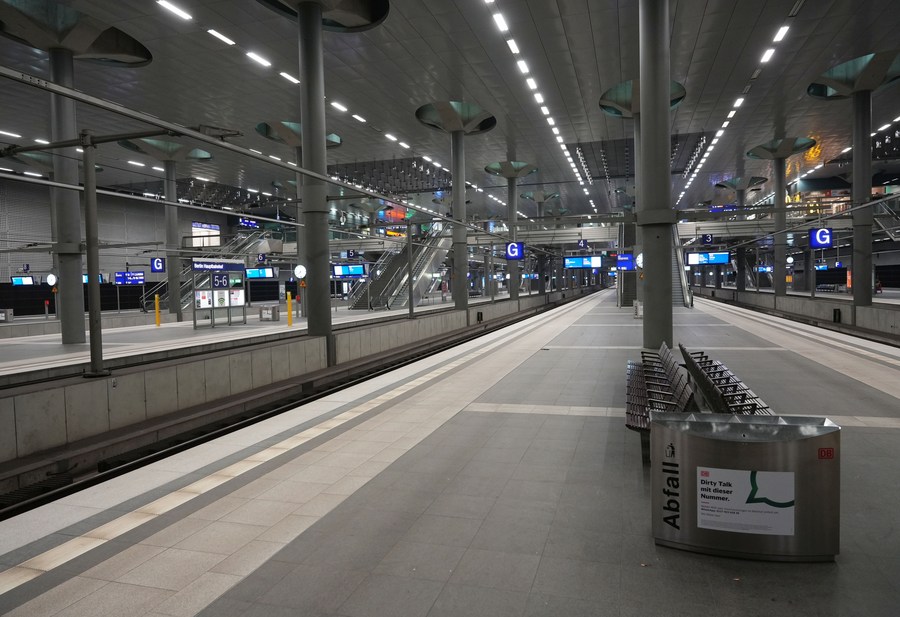
High-voltage grid facilities are pictured in suburban Berlin, Germany, Sept. 15, 2022. (Xinhua/Ren Pengfei)
The security of the power supply in Germany is jeopardized and the federal government is unable to comprehensively assess the impact of the energy transition on the landscape, nature and the environment, report said.
FRANKFURT, March 10 (Xinhua) -- Germany's green energy transition is facing challenges as a review report of its progress over the past three years showed that the government lags far behind its targets. However, the economic minister argued that the government is making progress.
The report released by the German Federal Court of Auditors (Bundesrechnungshof) on Thursday said that the security of the power supply in Germany is jeopardized, electricity is expensive, and the federal government is unable to comprehensively assess the impact of the energy transition on the landscape, nature and the environment.
The German government has set a goal of covering around 80 percent of electricity consumption with wind, water and solar energy by 2030, which was approved by the German parliament in 2022.
But in the past three years, the expansion of renewable energies and the electricity grids are progressing very slowly and there isn't enough additional generation capacity to meet the demand, said the report.
The report noted that Germany urgently needs to expand its grid by 6,000 km, seven years behind schedule.

This photo taken on Oct. 14, 2023 shows wind turbines in Brandenburg, Germany. (Xinhua/Ren Pengfei)
In particular, the targets for the expansion of onshore wind energy will not be achieved in the foreseeable future, said the report. In 2023, only half of the onshore wind projects required were awarded, it is therefore not realistic to expect the backlog to be made up this year, said Kay Scheller, president of the Federal Court of Auditors.
He also underscored the deficiency of monitoring mechanisms to track the consequences of the energy transition for land, biodiversity and other environmental damage.
Dismissing the findings of the review, German Economy Minister Robert Habeck said the report "does not reflect reality," according to German media outlet Focus Online. Germany may not have completed the transition, but progress is being made, and "the expansion has gained momentum," Habeck said.
The report also slammed the federal government for failing to reduce subsidies for fossil fuel products, which are believed to be counterproductive to the energy transition strategy in Germany and the European Union (EU).

A train runs among autumn leaves in the urban area of Berlin, Germany, Nov. 3, 2023. (Xinhua/Ren Pengfei)
Given that Germany's economy is caught in stagnation and a robust recovery remains at large, subsidies in the energy sector are widely considered a forceful tool to keep the threat of industrial exodus at bay.
Habeck has recently warned again that the German economy is in bad shape. As a strong advocate for energy subsidies, Habeck has complained about the elevated energy prices that could force companies in Germany to shift production to lower-cost destinations.
The federal government has approved a subsidy plan worth 5.5 billion euros as grid fees in 2024 to keep electricity prices in check.

This photo taken on Jan. 10, 2024 shows empty platforms at Berlin Central Train Station in Berlin, Germany. (Photo by Stefan Zeitz/Xinhua)
Germany emerged as one of the worst performers in terms of economic growth in the EU last year. Germany's economy shrank by 0.3 percent in 2023, in contrast to the 0.5 percent growth in the euro area.
Habeck said last month that the economic growth forecast for Germany will be slashed down to 0.2 percent in 2024, notably lower than the previous projection of 1.3 percent. ■
